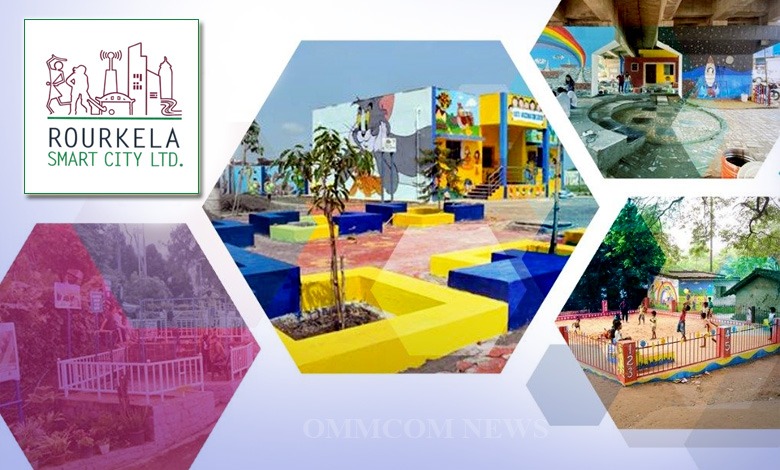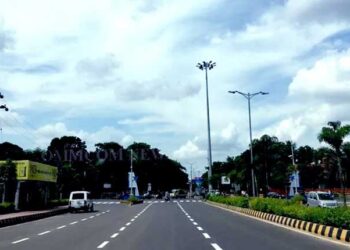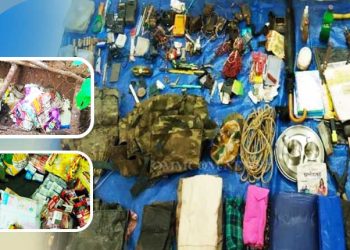Bhubaneswar: Steel City Rourkela has bagged a spot among top 10 cities in India, in the ‘Nurturing Neighbourhoods Challenge’, a competition organised by the Ministry of Housing and Urban Affairs.
The Ministry of Housing and Urban Affairs (MoHUA) organised an online event wherein it announced eleven winning cities for the Streets for People Challenge, and ten winning cities for the pilot stage of the Nurturing Neighbourhoods Challenge.
These cities will now enter the scale up stage of the challenge wherein the projects undertaken in the pilot stage will now be scaled up in a sustainable manner. At the event, the Ministry also launched Season-2 of India Cycles4Change and Streets for People Challenges and a book titled ‘Nurturing Neighburhoods Challenge: Stories from the Field”.
The event was chaired by Manoj Joshi, Secretary, MoHUA. The participants included global and Indian officials from partner organisations who had conducted the challenge, representatives from winning cities, officials from Central and State Governments, including CEOs of 100 Smart Cities.
Top 10 Awardees of pilot stage of the Nurturing Neighbourhoods Challenge, with some highlights, in alphabetical order, are:
BENGALURU enhanced the safety of an anganwadi to foster independence in toddlers, refurbishing common areas, toilets, and play spaces with child-specific design standards.
HUBBALLI-DHARWAD introduced a shared pram service and priority seating on 100 Bus Rapid Transit buses, improving the public transport experience for pregnant women and caregivers.
INDORE provided a neighbourhood park previously inaccessible to young children and revamping it with lighting, plants, and recycled and natural materials.
JABALPUR pioneered a child-friendly public vaccination centre, with outdoor play area and waiting space for caregivers and young children, lactation rooms, and ramps for universal accessibility.
KAKINADA converted underutilized street space into a protected pedestrian plaza and toddler play zone in the heart of the city, accessible to nearby informal settlements.
KOCHI converted dilapidated residual areas around anganwadis into safe, shaded public spaces for women to gather and young children to play.
KOHIMA transformed a roadside garbage dump into a green, community-funded micropark and adapted a schoolyard into a multipurpose public space for young children and caregivers.
ROURKELA created formal play spaces in informal settlements and introduced lactation booths in public spaces for the convenience of nursing mothers.
VADODARA introduced a mobile play van to set temporary play areas for children living in areas lacking such opportunities and reclaimed play space from under a flyover for an adjoining anganwadi.
WARANGAL improved play spaces in an anganwadi and provided safer access to it by enhancing pedestrian infrastructure along streets and junctions in the area.
MoHUA announced ten winning cities for the Nurturing Neighbourhoods Challenge, in collaboration with the Bernard van Leer Foundation (BvLF) and technical partner World Resources Institute (WRI) India. The Challenge is a 3-year phased initiative aimed at shaping early childhood-friendly neighbourhoods in Indian cities. The list of winning cities is at Annexure 2. Finalists were selected following comprehensive evaluation by a jury of representatives from MoHUA, BvLF, and independent experts in the fields of urban design, early childhood development, and behavioural change.
Following the challenge kick-off in November 2020, over 60 city agencies nationwide responded to an open call for proposals to implement neighbourhood-level pilot projects to enhance the physical and psychological health of infants, toddlers, and their caregivers. Shortlisted by an expert committee in February 2021 based on the strength of their proposals, 25 cities received technical assistance and capacity building over the next 7 months to demonstrate early wins, solicit citizen participation, and build consensus around their projects. In addition to the finalist cities named above, the cohort included Agartala, Coimbatore, Dharamshala, Erode, Hyderabad, Kota, Nagpur, Rajkot, Ranchi, Rohtak, Salem, Surat, Thiruvananthapuram, Tiruppur, and Ujjain.
Under the Nurturing Neighbourhoods Challenge pilot stage, i.e. stage 1, in 7 months, the pioneering cohort of 25 cities has:
Implemented over 70 pilot projects in neighbourhoods across India. These diverse projects ranged from creation of public spaces in slums, age-appropriate play areas, enhanced outdoor waiting spaces around primary health centres and anganwadis, amenities for caregivers, such as public toilets and nursing cabins, improved streets and junctions, and reclaiming underutilized and residual spaces to create parks and gardens.
These projects benefitted over 1 lakh children between the ages of 0-5 and more than 1 million people.
200+ champions are leading changes on ground, building the movement for young children-friendly cities
In the next scale up stage, i.e. stage 2, the 10 winning cities will receive technical assistance and capacity building to:
Replicate pilots with learnings and influence development plans, regulations and policies.
These cities will may to consider setting up a dedicated institutional mechanism to carry this work forward.
On the occasion, Joshi said, “The pandemic has highlighted the importance of the public realm for public health. Continuous micro movements on a daily basis is what keeps as active, alert and healthy. Citizen should able to get out of their homes and walk to the market, walk to work or nearest metro/bus stop to get to work, cycle for pleasure but also for commuting, not just go out to eateries/restaurants for recreation but be able to picnic at a park or waterfront, take up sports, and breath fresh air. Every citizen should be able to cultivate these daily habits for an active, healthy and happy life. But as government leaders we have to ensure that we are providing the necessary built and natural environment for these.”
“In an emerging paradigm at the Ministry, for the first time we are taking the lens of certain citizen groups to reimagining our cities. In partnership with the Bernard van Leer Foundation, we are investing in cities to nurture early childhood development and to make them work for caregivers. Changes led by the Nurturing Neighbourhoods cohort are transforming how we plan, design, and manage Indian cities to be healthier, more inclusive places for young children to grow up, which consequently enhances quality of life for all,” he added.



















